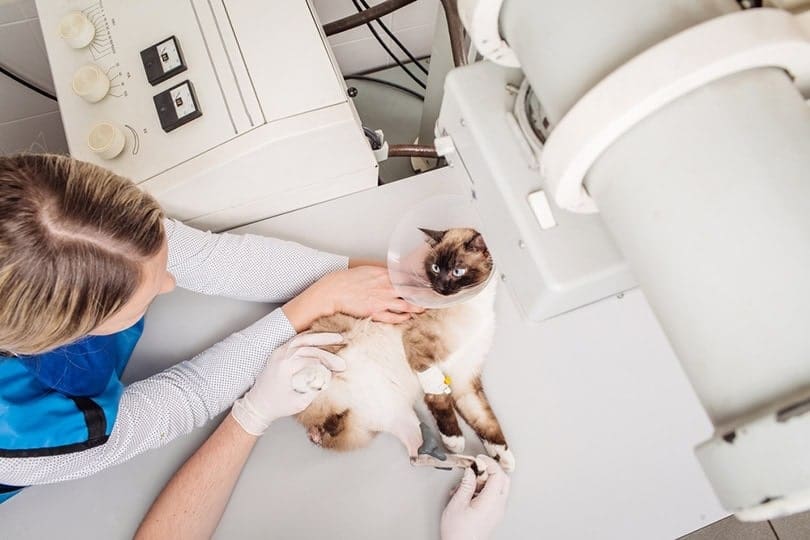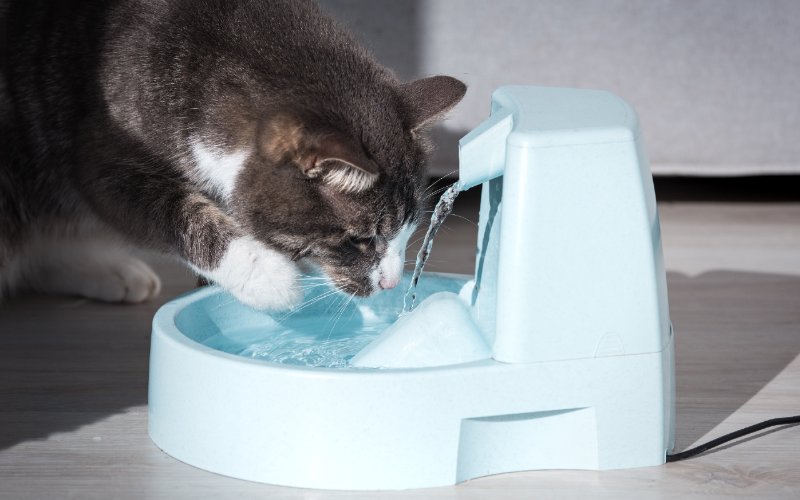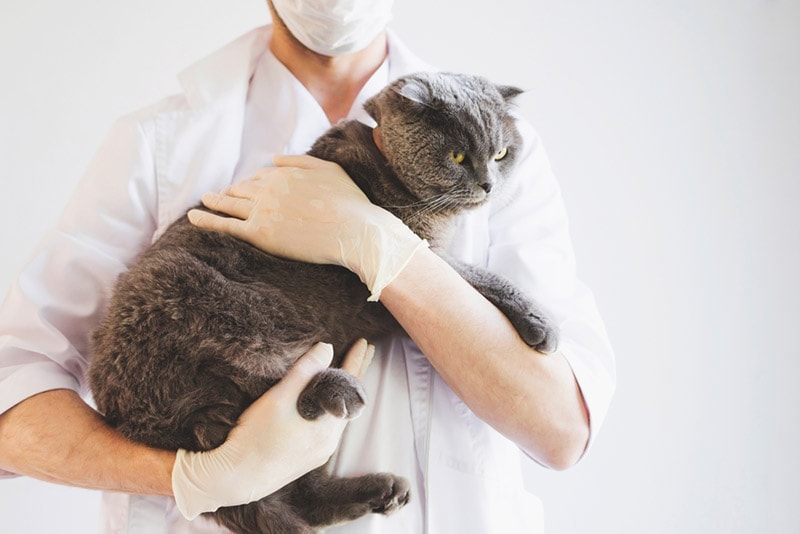Megacolon is a condition caused when too much fecal waste accumulates in the bowel. Megacolon can be congenital, but more commonly, it is an acquired condition that can be caused by poor diet, a foreign body in the colon, lack of exercise, or litter box and/or behavioral issues.
Constipation occurs when feces are retained in the colon. Feces become hard and firm, and the longer they stay in the colon, the more water is resorbed out of the colon. Eventually, if these fecal masses aren’t eliminated, the colon will become extended. This can lead to the colon muscles becoming so fatigued and stretched that they no longer function normally.
Signs
- Constipation
- Obstipation (chronic constipation, which can eventually lead to obstruction)
- Infrequent elimination
- Straining to defecate, followed by small amounts of loose stool
- Vomiting
- Loss of appetite
- Dehydration

Diagnosis of megacolon in cats
Your vet will take a complete health history of your cat, and perform a physical exam. Palpation of the rectum will reveal a hardened colon and a rectal exam will most likely find fecal impaction. In order to determine how severe the condition is and to identify or rule out underlying causes, your vet will also recommend other tests, including blood work, urinalysis, an ultrasound, X-rays with barium contrast studies, and possibly neurologic testing.
Treatment of megacolon in cats
The goal of treatment is to clean out the colon and identify issues that may have contributed to the condition. The type of treatment will depend on the severity of the condition, and may include use of laxatives and stool softeners. Severe cases may require repeated enemas to completely void the colon; some cats will require sedation for this procedure. Cats who are severely dehydrated may need to be hospitalized and given intravenous fluids. In severe recurrent cases, surgery to remove most of the damaged colon may be required.

Prevention of megacolon in cats
Megacolon can be prevented with healthy lifestyle management.
- Feed a species-appropriate, raw or grain-free canned diet.
- Give a good probiotic and digestive enzymes with each meal.
- Keep your cat well hydrated by providing plenty of fresh water. A fountain can be a good option to get cats to drink more water.
- Encourage your cat to exercise.
- Provide enough litter boxes to encourage proper elimination. Some cats prefer separate boxes for urine and stool.
Most cats with megacolon will respond to treatment and lifestyle changes. For those who require surgery, the success rate is high and most cats will continue to lead normal lives.
Featured Image Credit: Alice Rodnova, Shutterstock










